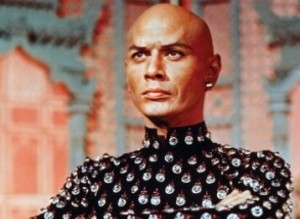From Psalms:
Give the king your justice, O God,
and your righteousness to a king’s son.
May he judge your people with righteousness,
and your poor with justice.
May the mountains yield prosperity for the people,
and the hills, in righteousness.
May he defend the cause of the poor of the people,
give deliverance to the needy,
and crush the oppressor.
(From the Daily Office Lectionary – Psalm 72:1-4 (NRSV) – September 19, 2012)
 It’s a puzzlement!
It’s a puzzlement!
In a recent online discussion of economic issues, a participant commented: “Government should not be charged with solving societal issues such as poverty, and this should be a society’s efforts to solve these problems through programs, charities, etc. sought by a willing group of individuals.” (I quote the comment as written; no editing.)
I don’t understand this compartmentalization of reality, this distinction of “government” as somehow separate from and different from “society”. I especially don’t understand it in a country whose founding document begins,
We the People of the United States, in Order to form a more perfect Union, establish Justice, insure domestic Tranquility, provide for the common defence, promote the general Welfare, and secure the Blessings of Liberty to ourselves and our Posterity, do ordain and establish this Constitution for the United States of America.
What is “society” if it is not “We the People”? And in our system of governance, the government, the sovereign, is also “We the People”. So how is it that “government” is distinct and different from “society” in the context of the United States of America? We the People decide by our votes who serves in “the government”. If we like the job they do, we vote them in again; if not, we vote them out. (There are a lot of people employed by “the government” who are not elected to it; but they are not “the government” — they are “government employees”. We can get rid of them, too, by voting out their elected bosses who are answerable to us.)
OK . . . so there’s that political framework puzzlement, but there’s also a religious puzzlement. Christian folk, especially conservative evangelical American Christian folk, love to pray the Psalms. Some of our most conservative brothers and sisters will allow no music in their worship other than the Psalms. So here we have a Psalm praying to God to give “the king” the power to “judge [God’s] poor with justice,” to “defend the cause of the poor,” to “give deliverance to the needy.” Later in the Psalm, “the king” is praised because he “delivers the needy when they call” (v. 12), he “has pity on the weak and the needy” and saves their lives (v. 13), he redeems their lives from oppression and violence (v. 14). In other words, he does all the things the participant in that conversation said the government shouldn’t do.
But the king was the government at the time the Psalms were written! We might be tempted to change king to president in an attempt to contextualize and modernize this Psalm to fit our American circumstance, but president would be the wrong word to substitute. The right word would be government. And an even more correct substitution would be We the People . . . for the king named in this Psalm was the sovereign and in our country We the People are the sovereign.
If we wish to pray this Psalm in our context, that would be the way to do it:
Give We the People your justice, O God,
and your righteousness to our children.
May We the People judge your people with righteousness,
and your poor with justice.
May the mountains yield prosperity for the people,
and the hills, in righteousness.
May We the People defend the cause of the poor of the people,
give deliverance to the needy,
and crush the oppressor.
Why the compartmentalization of life? Why the separation of government from society? Why the failure to see that what we revere in Holy Scripture, the righteousness prayed for the government in ancient Israel, ought to be our prayer for the government in modern America? Why the failure to see that it should be a prayer for ourselves? Why the refusal, as a society, as a nation, as the sovereigns of our nation’s government, to deliver the needy when they call, to have pity on the weak and the needy and save their lives, to redeem the lives of the poor from oppression and violence?
We the People are the society. We the People are the sovereign. We the People are the government. We the People are the ones called by this Psalm and charged by Holy Scripture with “solving societal issues such as poverty.” Why is this so difficult to comprehend?
As another king (a fictional one) was wont to say, “It’s a puzzlement!”
====================
Father Funston is the rector of St. Paul’s Episcopal Church, Medina, Ohio.



Leave a Reply